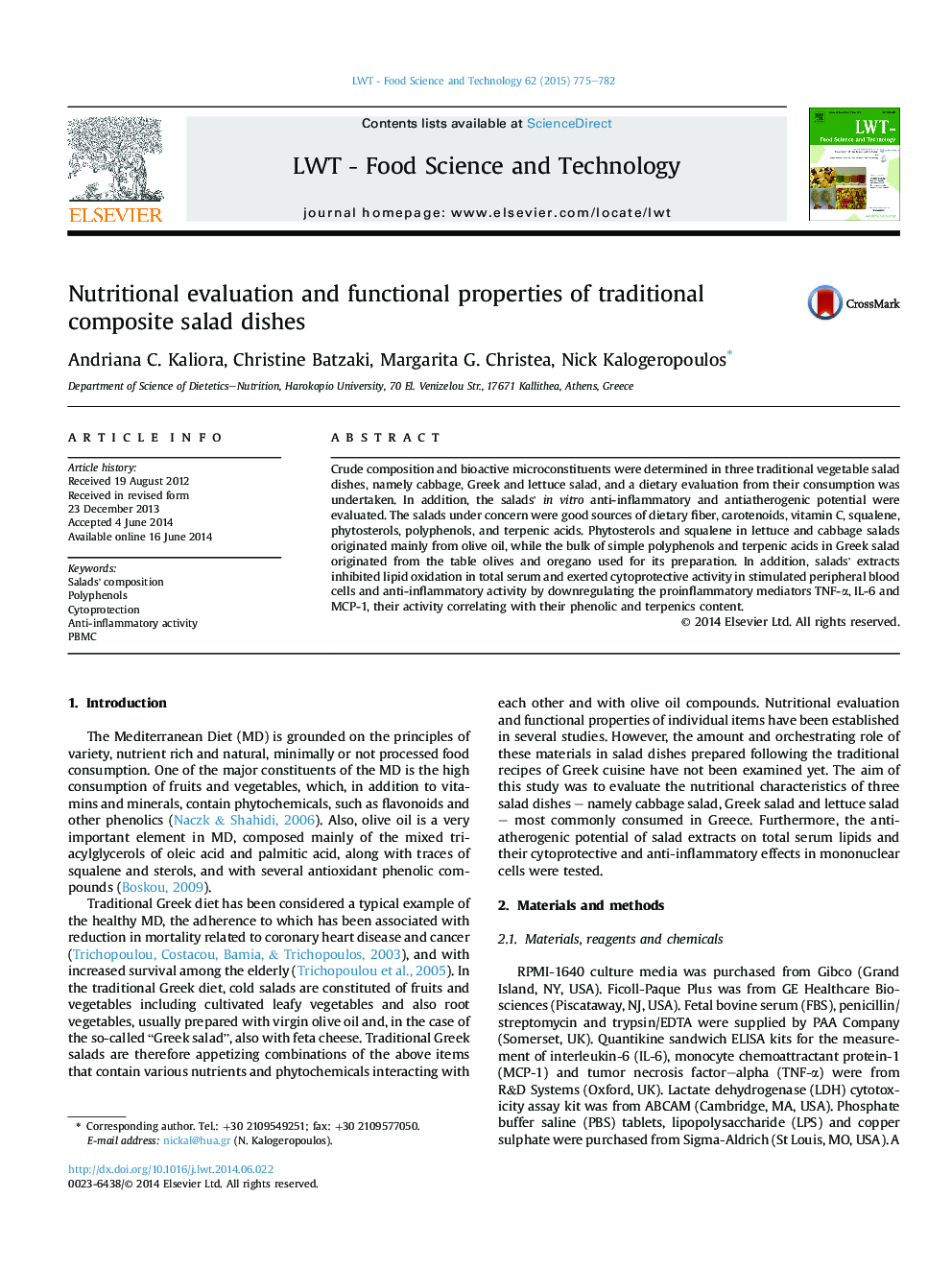| کد مقاله | کد نشریه | سال انتشار | مقاله انگلیسی | نسخه تمام متن |
|---|---|---|---|---|
| 6402328 | 1330886 | 2015 | 8 صفحه PDF | دانلود رایگان |
- Fresh salads with added olive oil are inherent components of the Mediterranean diet.
- Salads provide significant amounts of ascorbic acid, carotenes, sterols, squalene.
- In addition they provide several polyphenols, terpenoid phenols and terpenic acids.
- Salads exerted antiatherogenic, cytoprotective and anti-inflammatory activities.
- Salads' activity decreased in the order Greek salad > cabbage salad > lettuce salad.
Crude composition and bioactive microconstituents were determined in three traditional vegetable salad dishes, namely cabbage, Greek and lettuce salad, and a dietary evaluation from their consumption was undertaken. In addition, the salads' in vitro anti-inflammatory and antiatherogenic potential were evaluated. The salads under concern were good sources of dietary fiber, carotenoids, vitamin C, squalene, phytosterols, polyphenols, and terpenic acids. Phytosterols and squalene in lettuce and cabbage salads originated mainly from olive oil, while the bulk of simple polyphenols and terpenic acids in Greek salad originated from the table olives and oregano used for its preparation. In addition, salads' extracts inhibited lipid oxidation in total serum and exerted cytoprotective activity in stimulated peripheral blood cells and anti-inflammatory activity by downregulating the proinflammatory mediators TNF-α, IL-6 and MCP-1, their activity correlating with their phenolic and terpenics content.
Journal: LWT - Food Science and Technology - Volume 62, Issue 1, Part 2, June 2015, Pages 775-782
